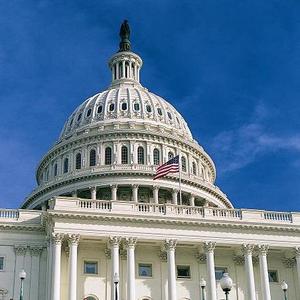Senators urge EPA to boost RFS volumes, account for exemptions

August 23, 2018
BY Ron Kotrba
A group of 39 U.S. senators is urging the U.S. EPA to increase volume obligations for biodiesel and overall advanced biofuels while also advising the agency to ensure any small refiner economic hardship exemptions are appropriately accounted for in its final rule for the Renewable Fuel Standard.
Led by U.S. Sens. Patty Murray, D-Washington; Roy Blunt, R-Missouri; Heidi Heitkamp, D-North Dakota; and Chuck Grassley, R-Iowa; the diverse, bipartisan group told EPA in a letter addressed to Acting EPA Administrator Andrew Wheeler that while the proposed 2019 advanced biofuel volume of 4.88 billion ethanol-equivalent gallons and proposed 2020 biomass-based diesel volume of 2.43 billion gallons are encouraging, they underestimate the potential of the biodiesel and renewable diesel industries in their states.
“We believe the biodiesel industry can do more and that EPA should demonstrate more confidence in the RFS program’s ability to drive growth,” the senators write. “Increasing biomass-based diesel and advance biofuel volumes would encourage investment in capacity and new fuel development.”
As the senators note in their letter, every 500 million gallon increase in biodiesel production supports an estimated 16,000 jobs.
Advertisement
“Further,” they continue, “EPA must accurately account for small refiner economic hardship exemptions in the final rule. … It is critical that EPA appropriately account for any small refiner economic hardship exemptions that it reasonably expects to grant during the 2019 compliance year in the final rule, or EPA will not be able to fulfill its duty to ensure RVOs are met.”
Kurt Kovarik, vice president of federal affairs for the National Biodiesel Board, said, “NBB and its members thank all of the senators who signed this letter and demonstrated their strong support for the RFS and its ability to drive growth in biodiesel production. We especially thank Sens. Murray, Blunt, Heitkamp and Grassley for their continued leadership. We join the senators in calling on EPA to raise biomass-based diesel volumes to an appropriate level that will drive additional growth. Biodiesel production has consistently exceeded the annual volume obligations set by EPA. The industry continues to operate below capacity, which limits job creation and economic growth. Moreover, EPA must fully and accurately account for small refiner hardship exemptions under the RFS. NBB estimates that the exemptions granted by EPA for 2016 and 2017 reduced demand for biodiesel and renewable diesel by about 300 million gallons. That lost demand is equal to or greater than the annual production of some of the nation’s top biodiesel producing states, including Washington, Missouri, North Dakota and Iowa. The volumes that EPA sets are meaningless if the agency does not ensure they are met at the end of the year.”
There is a distinction between asking EPA to reallocate lost gallons from the 2016-’17 small refinery exemptions and assuring any lost gallons due to future waivers are accounted for in the final RFS rule for 2019 advanced biofuel and 2020 biomass-based diesel volumes. A month ago, Sen. James Inhofe, R-Oklahoma, sent a letter to EPA begging the agency not to reconsider retroactively reallocating previously waived obligations.
Advertisement
“I would say that the Inhofe letter mischaracterizes as reallocation the proposal that was put in the 2019 RFS rule during the interagency review process,” Paul Winters, director of public affairs and federal communications with NBB, told Biodiesel Magazine. “That proposal did not seek to reallocate the 2.25 billion RINs from 2016 and 2017. It proposed to estimate the gallons EPA will exempt in 2019.”
Winters said in the proposed rule, EPA indicates the exempt gallons in 2019 will be zero. “But nobody believes that,” he said.
Only 20 other senators signed onto the Inhofe letter compared to the 39 that signed the Aug. 23 letter requesting higher volumes and appropriate accounting of waived volumes.
Winters said Sen. Mike Rounds also met with Wheeler on Aug. 21, bringing the total number of senators publicly calling on EPA to properly account for anticipated waived gallons in the final RFS rule to 40.
Related Stories
The U.S. EPA on July 8 hosted virtual public hearing to gather input on the agency’s recently released proposed rule to set 2026 and 2027 RFS RVOs. Members of the biofuel industry were among those to offer testimony during the event.
The USDA’s Risk Management Agency is implementing multiple changes to the Camelina pilot insurance program for the 2026 and succeeding crop years. The changes will expand coverage options and provide greater flexibility for producers.
President Trump on July 4 signed the “One Big Beautiful Bill Act.” The legislation extends and updates the 45Z credit and revives a tax credit benefiting small biodiesel producers but repeals several other bioenergy-related tax incentives.
CARB on June 27 announced amendments to the state’s LCFS regulations will take effect beginning on July 1. The amended regulations were approved by the agency in November 2024, but implementation was delayed due to regulatory clarity issues.
SAF Magazine and the Commercial Aviation Alternative Fuels Initiative announced the preliminary agenda for the North American SAF Conference and Expo, being held Sept. 22-24 at the Minneapolis Convention Center in Minneapolis, Minnesota.
Upcoming Events










